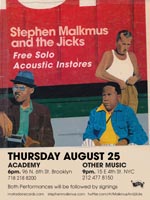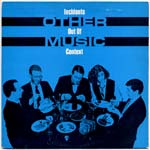| |
|
|
|
|
|
|
| |

$13.99 CD


|
|
FREDDY
La Voz Del Sentimiento
(Antilla)
 "Noche Y Dia" "Noche Y Dia"
 "Debi Llorar" "Debi Llorar"
Man oh man, get ready for this one, because you're in for a treat; I'm absolutely thrilled to be able to offer up one of my favorite recent discoveries, largely unavailable and which I think many of you will totally flip for as much as I have. Fredesvinda García Valdés was a Cuban singer better known as Freddy, who became a sensation in the 1950s Havana nightclubs with her unique renditions of boleros and canciones. She cut just one lone album in 1960 for the Puchito label, before passing away just a year later, and hot damn, is that album good. I first heard this record at a friend's house after a long night of social imbibing and dining; it was the perfect scenario to discover what would shortly become my newest obsession. Amazed that I'd never heard this incredible music before, I went on a quest to track down the record, which was available briefly on CD in France and has seen sporadic, grassroots distribution here in America. I discovered that the original LP traded for pretty serious money, and was one of esteemed director Pedro Almodóvar's favorite albums. After having the luck and solid detective skills to find a well-loved copy of the original LP at a steal of a price, I understood why; this album is one of a kind, familiar yet strangely alien, tapping into feelings and moods you've heard before yet presented in a fashion so simultaneously clear-cut and shrouded in mystery, it's practically tailor-made for passionate obsession.
At around 300 pounds, Freddy's physical stature gave her contralto voice a bewitching, androgynous sound that often reminds me of a Cuban precursor to
Antony Hegarty and the same sad, forlorn nightclubs and cabarets are conjured up as the places where these figures haunt with their powerful yet spectral songs.
Freddy is backed by the arrangements of Humberto Suárez, who gives these songs a gorgeous blend of noirish afterhours jazz peppered with organ, brass, softly percolating Latin percussion, and sweeping strings; everything is mapped out with an expert touch, showing restraint and then pouncing forward with emotional torrent as the songs build to emotional climax. She tackles popular boleros of the era as well as giving voice to fantastic versions of Gershwin's "The Man I Love," which opens the album, and an incredible take on Cole Porter's "Night And Day," which slow-burns and pulsates with a fire so intense that I had to stop what I was doing when I first heard it. The record closes with a dark, mind-melting version of "Besame Mucho," moving like a criminal in the shadows, ready to mug your senses until her final exaltation at album's end. I seriously cannot express how deeply I was moved by this LP, and how much I've listened to it since I first discovered it a few months back. I don't want to pigeonhole any potential listeners by saying "fans of this should give it a chance," because honestly, this is one of those albums that everyone should hear at least once before they die. This is passion on wax and plastic, captured for your enjoyment, your torment, your rabid consumption. If anything I've said in this overview has piqued your interest, listen to the soundclips and give it a shot. I'm not sure when we'll see this again, or for how long, so don't sleep. Absolute highest recommendation, but you knew that already, didn't you? [IQ] |
|
| |
|
|
|
|
|
|
|



























